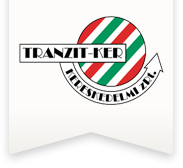Goldenfood goose breast is a great source of iron, copper and zink
Iron, copper and zinc are indispensable minerals for the human body, as they play an important role in maintaining and boosting its natural defences. A recent analysis has proved that the Goldenfood-branded goose breast is rich in iron and copper. It means that it contains the double of the NRV (Nutrient Reference Value) - i.e. the recommended daily intake - that is relevant to these minerals. The same analysis has also concluded that the goose breast marketed under the Goldenfood brand contains zinc in an amount that is recommended to take in every day. Thus, it represents a great source of iron, copper and also zinc.
What is called a young goose?
By definition, a young goose is a goose aged 56-63 days, i.e. not older than 9 weeks, that has white feathers and weighs more than 4 kilogramms. A young goose’s fat layer under the skin is not thicker than 3 mm. These geese have not yet once changed their feathers.
What is called a meat-type goose?
Meat-type geese are white-feathered geese aged 16-23 weeks that are slaughtered after three weeks of fattening. The ratio of their valuable meat parts exceeds that of young geese. They are fatter at the same time - a fat layer of 4-5 mm forms under their skin.Meat-type geese are produced in two phases: after 3-4 weeks in the brooder, geese are transferred to grow to market weight under either intensive confinement conditions or extensive range-type conditions.
Why do not retail stores sell goose and duck eggs?
It is for various reasons. Firstly, because - by virtue of their lifestyle - geese are potential Salmonella carriers, which is why goose eggs are not fit for human consumption. For the other part, because geese lay way less eggs than other poultry: ca. 30-60 eggs between January and May. Without artificial intervention, geese do not lay any eggs in other periods of the year.
Why are geese unplucked at Tranzit Group?
Geese as livestock are raised for various production purposes ranging from meat production, over down and feather production, up to fatty liver and foie gras production. As Tranzit Group is exclusively engaged in the keeping and breeding of white-feathered geese for meat, neither breeding geese nor end-product stocks are plucked.
Does Tranzit Group provide humane treatment for geese?
In accordance with Section 6 of Act XXVIII of 1998 on the Protection and Humane Treatment of Animals, it is prohibited to cause animals any unjustified or avoidable pain, suffering or harm. Subject to the relevant rule of law, Tranzit Group is required to relieve or possibly eliminate the pain of animals, which the company absolutely meets.


